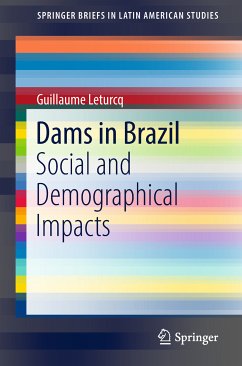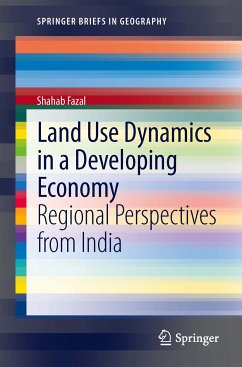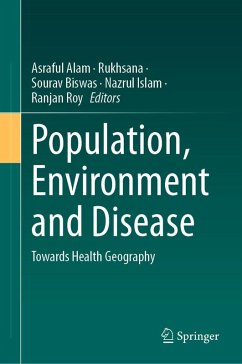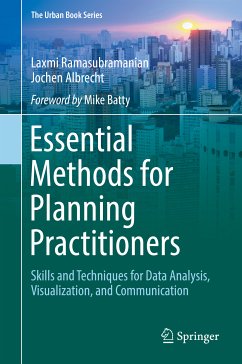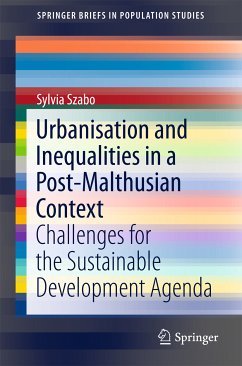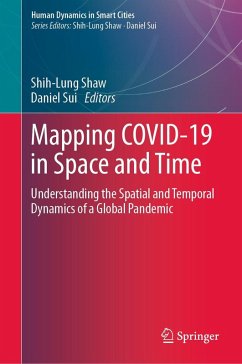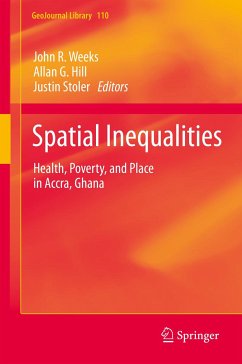
Spatial Inequalities (eBook, PDF)
Health, Poverty, and Place in Accra, Ghana
Redaktion: Weeks, John R.; Stoler, Justin; Hill, Allan G.
Versandkostenfrei!
Sofort per Download lieferbar
72,95 €
inkl. MwSt.
Weitere Ausgaben:

PAYBACK Punkte
36 °P sammeln!
This book provides a fresh analysis of the demography, health and well-being of a major African city. It brings a range of disciplinary approaches to bear on the pressing topics of urban poverty, urban health inequalities and urban growth. The approach is primarily spatial and includes the integration of environmental information from satellites and other geospatial sources with social science and health survey data. The authors Ghanaians and outsiders, have worked to understand the urban dynamics in this burgeoning West African metropolis, with an emphasis on urban disparities in health and l...
This book provides a fresh analysis of the demography, health and well-being of a major African city. It brings a range of disciplinary approaches to bear on the pressing topics of urban poverty, urban health inequalities and urban growth. The approach is primarily spatial and includes the integration of environmental information from satellites and other geospatial sources with social science and health survey data. The authors Ghanaians and outsiders, have worked to understand the urban dynamics in this burgeoning West African metropolis, with an emphasis on urban disparities in health and living standards. Few cities in the global South have been examined from so many different perspectives. Our analysis employs a wide range of GIScience methods, including analysis of remotely sensed imagery and spatial statistical analysis, applied to a wide range of data, including census, survey and health clinic data, all of which are supplemented by field work, including systematic socialobservation, focus groups, and key informant interviews. This book aims to explain and highlight the mix of methods, and the important findings that have been emerging from this research, with the goal of providing guidance and inspiration for others doing similar work in cities of other developing nations.
Dieser Download kann aus rechtlichen Gründen nur mit Rechnungsadresse in A, B, BG, CY, CZ, D, DK, EW, E, FIN, F, GR, HR, H, IRL, I, LT, L, LR, M, NL, PL, P, R, S, SLO, SK ausgeliefert werden.




